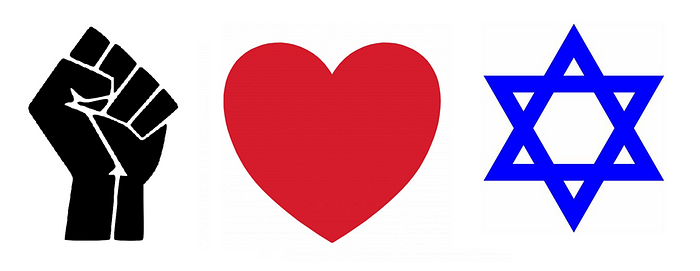Member-only story
The Importance and Beauty of Black and Jewish Unity
Our struggles for liberation and justice are bound together. We all deserve to move forward with hope, understanding and love.

Over the past few weeks, American Jews have been brutally reminded how rampant and entrenched antisemitism still is in this country. After Kanye West’s remarks and threats against the Jewish people, Brooklyn Nets star Kyrie Irving came under fire for promoting an antisemitic documentary to his Twitter. Neo-Nazis held banners over a highway overpass in Los Angeles that read “Kanye was right about the Jews” as cars enthusiastically honked in support; credible bomb threats have caused evacuations at synagogues and Jewish community centers, while Holocaust museums have been flooded with harassment and threats. It has been a difficult, traumatizing time for Jews — and for Black Jews in particular — but it is imperative that we use this moment to remember our shared struggle for liberation, and the enormous power of our unity.
There is no denying the historical tensions between Black and Jewish communities in America. Once having lived alongside each other on the margins of society in places like Brooklyn, many light-skinned Ashkenazi Jewish people were eventually able to assimilate into society. Following the path of the “model minority” that Cathy Park Hong articulates so beautifully in her book “Minor Feelings,” there were indeed many Jewish people over the decades who benefitted from increased mobility in that relative assimilation without looking back to elevate their Black siblings.
Cathy Park Hong reflects on the Asian-American experience of the model minority myth in a way that also felt deeply resonant for the American Jewish experience: “The lie that Asians have it good is so insidious that even now as I write, I’m shadowed by doubt that I didn’t have it bad compared to others. But racial trauma is not a competitive sport. The problem is not that my childhood was exceptionally traumatic but that it was in fact rather typical. Most white Americans can only understand racial trauma as a spectacle.”
Reconciling the trauma and antisemitism within the American Jewish experience need not come at the expense of reconciling anti-Black racism; reconciliation…
